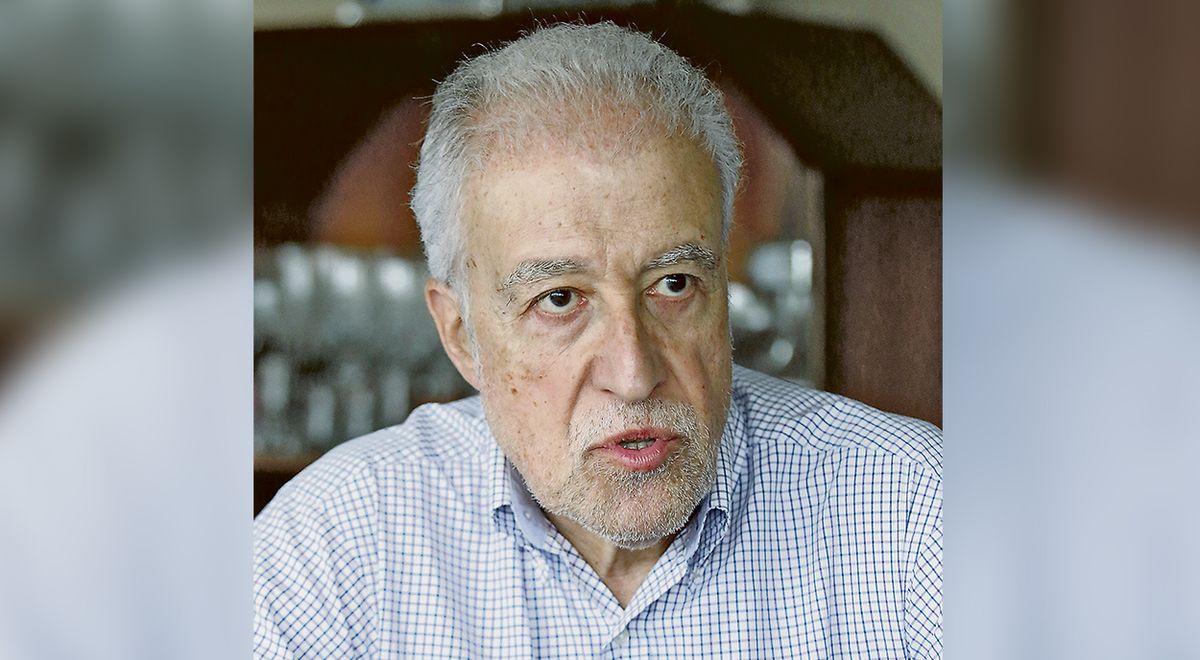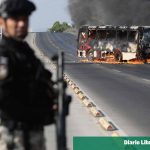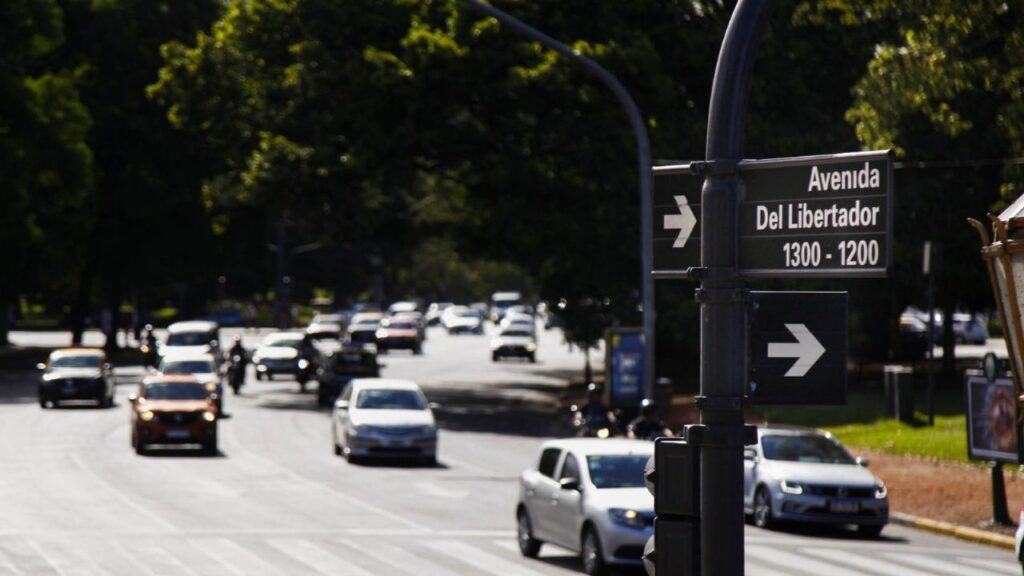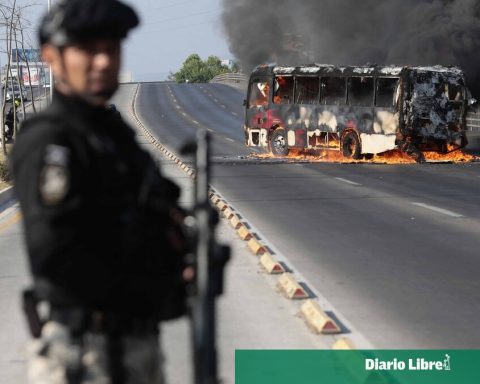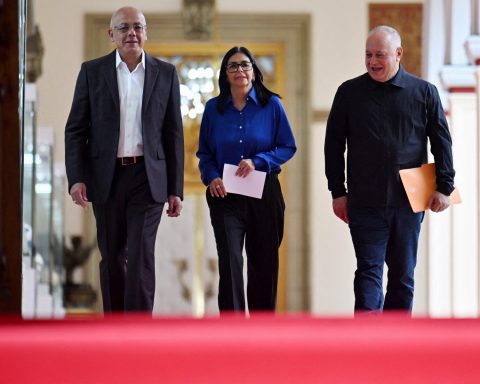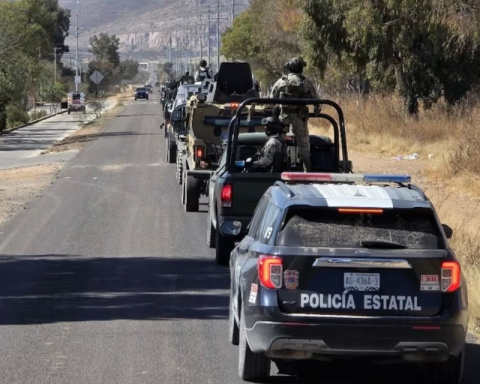The political and social crisis in Peru gives no one a break. Luis Pasara is a Peruvian researcher, based for more than 30 years in Spain, but who maintains a permanent and attentive look at what happens in the country. Below are his reflections, nothing concessive.
Pedro Castillo has been saved from two vacancy processes. But the feeling is that he stays because he has the votes to avoid being impeached. The surprising thing is that the blurring of him has been rapid, in just eight months. Huancayo is a sample, where people have come out to protest bad management. How do you evaluate the government so far?
His mistakes are many throughout this period that he considers his learning. Perhaps the main one lies in his absolute lack of criteria to choose his ministers. Many of those who have passed through these months do not have the ability and background to qualify them for the position. But when one thinks of the town to which Castle invoked ritually, little or nothing appears in the government management around improving the situation of that people. The dissatisfaction has been showing in his decline in the polls: in March only one in four interviewees supported him; this is half of us who elected him in June. The outbreak in Huancayo notifies the weariness in the street that, in a certain situation, exploits against a bad government that does not attend to the main problems.
A government that arrived in theory to represent the interests of the people…
That is the speech.
YOU CAN SEE: Government achieves partial agreements and agrarian bases request the presence of Pedro Castillo
And that raised vindictive flags. Is it possible to define the Castillo government ideologically?
The categories of left and right are less and less useful for understanding politics, not only in Peru. Of course, they tell us something, because they point to actors who seek social change and those who seek to preserve the existing order. But that is insufficient. Castillo is a combative trade unionist who, upon reaching government, reveals that he has no compass, he is not capable of proposing effective lines for social or economic change. It is an excess to call him from the left because he was proposed as a candidate by the Cubanophile Vladimir Cerronbut their people stand out, more than whether or not they call themselves Marxists, the misdeeds that are the subject of legal proceedings and that continue to be discovered every week.
Castillo, however, received support from the left. A sector of the left saw in him one of their own.
Yes, exactly. Perhaps it is the most unfortunate thing for the left. It’s not the first time. They did the same thing to Castillo that they did in 1990 by supporting Fujimori against Vargas Llosa, receiving in exchange three ministries in which they lasted a few months. They haven’t lasted long this time either, and they probably haven’t learned their lesson either. What was left of the left, the remnants of the left, come out of this government even more diminished and, of course, without any political future for a long time. Do you know what can give a space to those remnants on the left?
What thing?
The clamorous errors, the overwhelming ignorance of what we call right. That keeps left-wing groups with some chance.
YOU CAN SEE: The Ethics Commission will evaluate this Monday the final report against Chirinos for insulting Pedro Castillo
Aren’t we concentrating the debate too much on names and leaving aside the most structural, systemic flaws that trigger the situation?
Yes. Journalism has a responsibility to raise an agenda that prioritizes the scandal and not the problems. It is easier for him to build news around the miseries of characters who have faces and police or judicial records, than to analyze underlying unresolved challenges. But it should be noted that, given the disappearance of the parties and the lack of qualifications of the actors from across the political spectrum, these problems are not discussed, neither at the initiative of the Executive nor of the Congress. Politics has become the art of throwing stones at the adversary until an agreement is reached with him that produces advantages for both parties. That is real politics today. This is what has led to the understanding so that the president is not vacated and the congressmen remain in office. Those who have climbed onto the political stage “earn something.” And the country’s problems are still there, waiting for the next oil spill, the floods, the various forms of labor exploitation that our well-paid labor lawyers invent, the increase in human trafficking and all the conflicts between mining companies and residents who do not find a solution.
Can the new elections be a way out of the crisis, or is it an illusionary position? Experts point out that choosing under the same system would yield the same results.
I am radical in skepticism. What is wrong is not the system, it is Peruvian society that is sick, degraded, in a degenerative process. This jumps onto the political scene, but it is not generated in politics. For Peruvians it is very easy to say “the problem is the politicians” and nobody says that the problem is the Peruvians. There is a problem with politicians, obviously, it is not an excuse. The situation in the country that began a year ago, in the first round of the general elections, revealed the lack of alternatives. And the election of Castillo demonstrated, first, the weight that the rejection of Fujimori continues to have and, throughout these months, we realized that we had elected a government of incapable and corrupt people. Last year it was shown that there was no way out on the political scene. To think that there will be one today or tomorrow if new elections are called is, indeed, naive. The let-them-all express a very justified rejection. The question is whether what follows…
It may be better.
That’s right, and I think it’s very difficult for it to be different. I want to ask you another problem…
YOU CAN SEE: Pedro Castillo warns that he cannot intervene in the control of fuel prices
Which?
Ask ourselves why our politicians are so weak, both in terms of skills and morality. Where do these politicians come from? It seems that they have come from another country or planet. They express today’s society. In the last three elected Congresses, the resulting qualities show that, in Peru, whoever is elected is not up to the task. The real question that we do not want to ask ourselves -because it is very uncomfortable- is what has happened in Peruvian society for this to happen. Haven’t we lowered ourselves to the point of accepting as normal things like the lack of commitment to what we do or corruption? We are not responsible for this and we prefer to say that the problem is with the politicians and the State, that the State is bad. One day we will have to realize that the problem is in us.
That we Peruvians are the problem?
Exactly. I think we Peruvians are the problem.
The Inter-American Court has asked to stop the release of Alberto Fujimori, ordered by the Constitutional Court. It strikes me that we are still talking about him, more than twenty years after he left power. What do you think of this case?
If we continue talking and discussing the Fujimori case, it is because the wounds it caused have not healed. But, in addition, political options are discussed around this matter. Claiming Alberto Fujimori, now asking for his freedom, is to proclaim a model of government, dictatorial and thieving, legitimized by many with that motto of “steals, but does work.” The same thing happened with Manuel Odría and then many came, Luis Castañeda is one of the most recent. That model is actively contested by another sector –the “Fujimori never again” sector–which believes that the country deserves better, even if it fails to find it. Not only does it not have a name, there are also no proposals for a better country. So claim that fujimori get out of prison –as a precarious majority in the Constitutional Court has arbitrarily arranged, to the shame of this institution– hides an old authoritarian policy that, by the way, does not include combating the usual injustices. And to resolve the issue of the dictator, the country has to abide, not by what its own corrupted institutions decide, but by the mandate of an international court. We have dragged ourselves to that point, where a decent and adequate solution has to be imposed on us from outside. It’s awful.
He was recently in Lima. You have lived outside Peru for more than 30 years. What did you think of what you saw?
Since the years of the Shining Path, which created a very special climate, I speak above all in Lima…
Of restlessness?
Restlessness, restlessness, lack of prospects. Since those years I have not seen a climate of despair like the one I have seen these weeks that I have been in Lima. I have been impressed. People that I know, that I see with some regularity, and that this time, unlike others, I have found hopeless. That has shocked me. It has impacted me.
